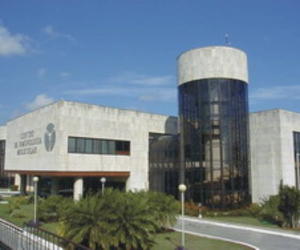Cuba - Investing In Biotechnology To Battle Cancer
- Submitted by: lena campos
- Health and Medicine
- 02 / 06 / 2013

The Cuban government has made a substantial investment in biotechnology in a drive to battle cancer, the country's second leading cause of death, after cardiovascular disease.
The World Health Organization (WHO) estimates that 31,000 new cancer diagnoses are made in Cuba each year, and that 21,000 patients die of the disease annually.
Dr José Luis Di Fabio, the head of the WHO Country Office in Cuba, said:
"Cancer is one of the major killers in Cuba. This is partly because people live longer but also because many have adopted unhealthy lifestyles. Too many people use alcohol harmfully, eat unhealthily and use tobacco. Among men, prostate and lung cancers are the most common types of cancer, and among women breast and cervical cancer are at the top of the list."
WHO says that Cuba followed up its recommendations by setting up a "comprehensive national cancer plan" to make sure all Cubans have access to all levels of health service - from prevention, diagnosis, to palliative care.
According to Cuban health authorities, their anti-cancer plan is based on a strong primary health care system that allows patients to see their GP (general practitioner, primary care physician) regularly, so that health problems, including cancer are spotted early on during the disease.
When the primary care physician suspects cancer, the patient is referred to specialized centers for diagnosis and suitable treatment.
The Center of Molecular Immunology
WHO says Cuban scientists have made considerable progress recently in their quest for new cancer treatments, as well as tools for better diagnosis and prevention.
A vaccine for the treatment of advanced lung cancer which was developed by the Center of Molecular Immunology, Havana, Cuba, was registered by the Ministry of Health in 2008. WHO described the vaccine as "one of the biotechnology spearheads in Cuba that is focusing on cancer treatments and vaccines. A second vaccine against the same type of cancer was patented in the beginning of 2013."
Dr. Augstin Lage Davila, General Director of the Center of Molecular Immunology (CIM), said "Biotechnology is key to transforming cancer from a deadly disease into a chronic one. Our drugs make chemo and radiation therapies more effective and less toxic. This helps us to achieve our ultimate goal: a longer life and a better quality life for our patients."
The anti-cancer medication Nimotuzumab, used for the treatment of advanced tumors in the head, neck and brain, was developed by CIM. Nimotuzumab mimics human immune cells and binds to target molecules of cancer cells - it is a "monoclonal antibody".
Nimotuzumab is undergoing clinical trials in Europe and Japan. It targets a protein that causes chaotic cell division and growth.
The CMI was modeled on the current GMP (Good Manufacturing Practice) guidelines recommended by WHO and adopted by European Union countries. Research laboratories, manufacturing areas and administrative offices occupy 15,000 square meters of the two floor facility.
Approximately 800 people work at CIM, the majority of them are scientists and engineers. They are organized into three main areas: R&D, Production and QA (Quality Assurance).
Sponsoring biotechnology despite economic hardship
WHO commends the Cuban government for maintaining biotechnology research investment despite the country's current economic hardship. Over the last two decades over $1 billion have been invested in R&D (research and development).
Biotech exports have steadily increased, bringing in several hundred million dollars of income to the country.
Di Fabio said:
"More than 90 new products are currently being investigated in more than 60 clinical trials. These numbers are expected to grow. The tremendous benefit from this focus on health biotechnology is that it is producing more affordable drugs to tackle diseases that run rampant in low- and middle-income countries."
Source: http://www.medicalnewstoday.com/articles/255830.php
Comments